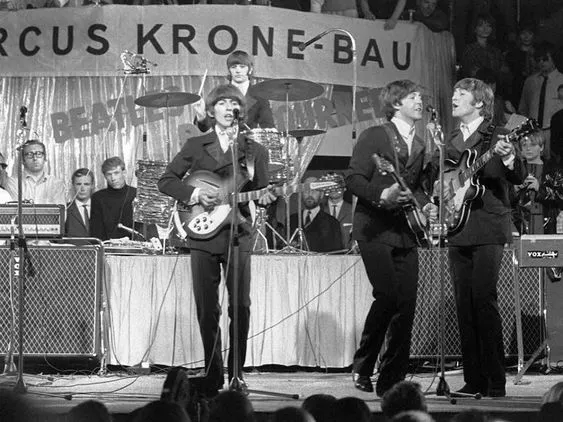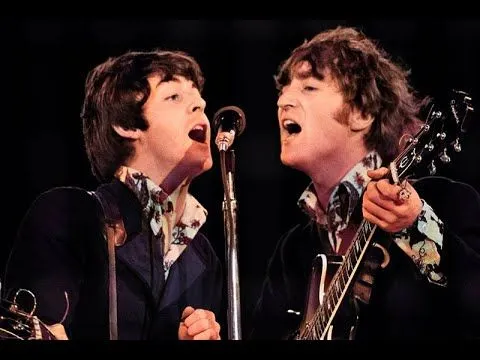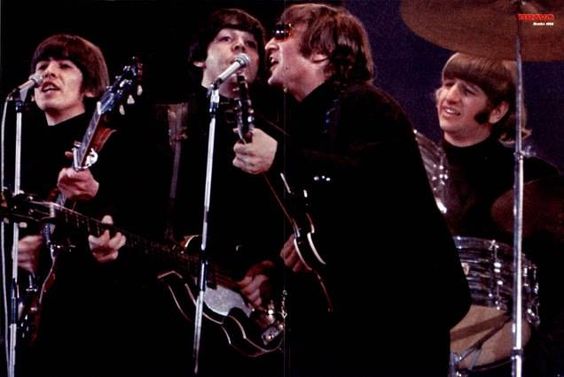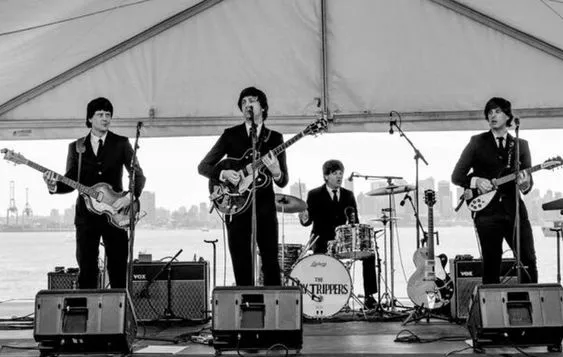About the song
(Watch the video below)
In the turbulent landscape of the 1960s, The Beatles emerged not only as musical innovators but also as cultural icons whose influence transcended the boundaries of popular music. Among their many groundbreaking tracks, "Revolution" stands as a powerful anthem that captured the spirit of the era and challenged conventional norms with its bold lyrics and electrifying sound. Released in 1968 as a B-side to the single "Hey Jude," "Revolution" remains a testament to The Beatles' willingness to push boundaries and provoke thought through their music.
At its core, "Revolution" is a blistering critique of the status quo and a call to action for social and political change. Written against the backdrop of the civil rights movement, anti-war protests, and widespread social upheaval, the song reflects the growing disillusionment with authority and the desire for a more just and equitable society. John Lennon's raw, impassioned vocals convey a sense of urgency and defiance, while the band's frenetic instrumentation adds to the song's sense of urgency and intensity.

Musically, "Revolution" is a departure from The Beatles' earlier, more polished sound, embracing a raw and gritty aesthetic that mirrors the song's rebellious spirit. The distorted guitar riff that opens the track immediately grabs the listener's attention, setting the stage for the explosive energy that follows. Ringo Starr's propulsive drumming drives the song forward, while Paul McCartney's driving bassline adds a sense of urgency and momentum to the proceedings.
Lyrically, "Revolution" pulls no punches, tackling a range of contentious issues with unflinching honesty and conviction. Lines like "You say you want a revolution / Well, you know, we all want to change the world" capture the frustration and disillusionment of a generation grappling with social injustice and political upheaval. Lennon's call for change is both impassioned and confrontational, challenging listeners to question authority and take a stand against oppression.
One of the most striking aspects of "Revolution" is its dual identity as both a rallying cry for social change and a commentary on the pitfalls of revolutionary zeal. While the song advocates for shaking up the status quo and challenging entrenched power structures, it also acknowledges the complexities and uncertainties of effecting meaningful change. Lines like "But if you go carrying pictures of Chairman Mao / You ain't gonna make it with anyone anyhow" serve as a cautionary reminder of the dangers of dogmatism and extremism.
"Revolution" also stands as a testament to The Beatles' willingness to experiment and innovate with their music, even at the risk of alienating some of their more mainstream fans. The song's abrasive sound and confrontational lyrics marked a departure from the band's earlier, more lighthearted material, signaling their evolution as artists and cultural provocateurs. By embracing a more confrontational and politically charged stance, The Beatles demonstrated their commitment to using their platform to address pressing social issues and provoke thought and discussion.

Beyond its musical and lyrical significance, "Revolution" holds a special place in The Beatles' legacy as a reflection of the tumultuous times in which it was created. As the 1960s gave way to the 1970s, the song served as a rallying cry for a generation grappling with social upheaval, political unrest, and a rapidly changing world. Its message of defiance and resistance resonated deeply with audiences around the world, solidifying The Beatles' status as cultural icons and musical trailblazers.
In conclusion, "Revolution" stands as a powerful testament to The Beatles' enduring legacy as musical innovators and cultural provocateurs. With its bold lyrics, electrifying sound, and unapologetic call to action, the song remains as relevant and impactful today as it was upon its release over half a century ago. As the world continues to grapple with issues of social justice, political unrest, and cultural change, "Revolution" serves as a timeless reminder of the power of music to inspire, provoke, and effect meaningful change.



